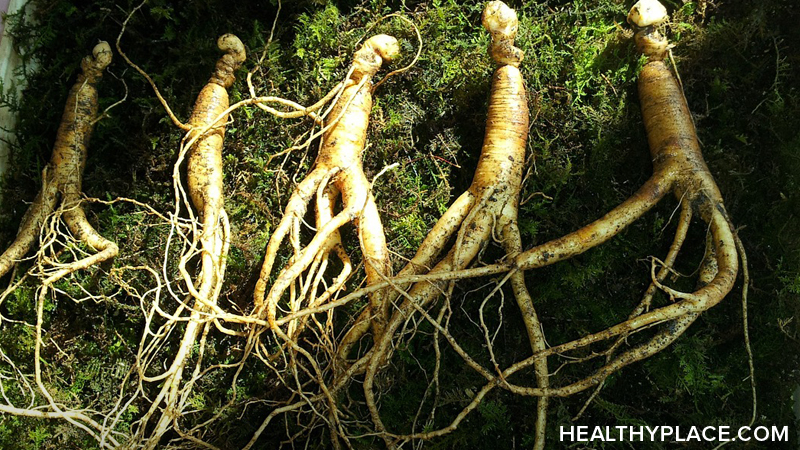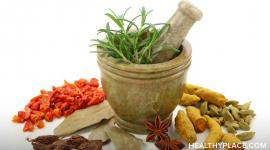Asian Ginseng: Herbs

Learn about the herbal remedy, Asian Ginseng, for treatment of Alzheimer's disease, erectile dysfunction and to improve memory and learning. Does Asian Ginseng really work?
On this page
- Introduction
- What It Is Used For
- How It Is Used
- What the Science Says
- Side Effects and Cautions
- Sources
- For More Information
Introduction
This fact sheet provides basic information about the herb Asian ginseng--common names, uses, potential side effects, and resources for more information. Asian ginseng is native to China and Korea and has been used in various systems of medicine for many centuries. Asian ginseng is one of several types of true ginseng (another is American ginseng, Panax quinquefolius). An herb called Siberian ginseng or eleuthero (Eleutherococcus senticosus) is not a true ginseng.
Common Names--Asian ginseng, ginseng, Chinese ginseng, Korean ginseng, Asiatic ginseng
Latin Name--Panax ginseng
What is Asian Ginseng Used For
Treatment claims for Asian ginseng are numerous and include the use of the herb to support overall health and boost the immune system. Traditional and modern uses of ginseng include:
-
Improving the health of people recovering from illness
-
Increasing a sense of well-being and stamina, and improving both mental and physical performance
-
Treating erectile dysfunction, hepatitis C, and symptoms related to menopause
-
Lowering blood glucose and controlling blood pressure
How It Is Used
The root of Asian ginseng contains active chemical components called ginsenosides (or panaxosides) that are thought to be responsible for the herb's medicinal properties. The root is dried and used to make tablets or capsules, extracts, and teas, as well as creams or other preparations for external use.
What the Science Says
-
Some studies have shown that Asian ginseng may lower blood glucose. Other studies indicate possible beneficial effects on immune function.
-
To date, research results on Asian ginseng are not conclusive enough to prove health claims associated with the herb. Only a handful of large clinical trials on Asian ginseng have been conducted. Most studies have been small or have had flaws in design and reporting. Some claims for health benefits have been based only on studies conducted in animals.
-
NCCAM is supporting research studies to better understand the use of Asian ginseng. NCCAM is studying how Asian ginseng interacts with other herbs and drugs and exploring its potential to treat chronic lung infection, impaired glucose tolerance, and Alzheimer's disease.
Side Effects of Asian Ginseng and Cautions
-
When taken by mouth, ginseng is usually well tolerated. Some sources suggest that its use be limited to 3 months because of concerns about the development of side effects.
-
The most common side effects are headaches and sleep and gastrointestinal problems.
-
Ginseng can cause allergic reactions.
-
There have been reports of breast tenderness, menstrual irregularities, and high blood pressure associated with ginseng products, but these products' components were not analyzed, so effects may have been due to another herb or drug in the product.
-
Ginseng may lower levels of blood sugar; this effect may be seen more in people with diabetes. Therefore, people with diabetes should use extra caution with Asian ginseng, especially if they are using medicines to lower blood sugar or taking other herbs, such as bitter melon and fenugreek, that are also thought to lower blood sugar.
-
It is important to inform your health care providers about any herb or dietary supplement you are using, including Asian ginseng. This helps to ensure safe and coordinated care.
Sources
Ginseng, Asian (Panax ginseng). In: Coates P, Blackman M, Cragg G, et al., eds. Encyclopedia of Dietary Supplements. New York, NY: Marcel Dekker; 2005:265-277. Accessed at Dekker Encyclopedias Web site on August 18, 2005.
Ginseng, Panax. Natural Medicines Comprehensive Database Web site. Accessed on August 18, 2005.
Ginseng. Natural Standard Database Web site. Accessed on August 18, 2005.
Ginseng root. In: Blumenthal M, Goldberg A, Brinckman J, eds. Herbal Medicine: Expanded Commission E Monographs. Newton, MA: Lippincott Williams & Wilkins; 2000:170-177.
National Center for Complementary and Alternative Medicine. Hepatitis C and Complementary and Alternative Medicine: 2003 Update. National Center for Complementary and Alternative Medicine Web site. Accessed on August 18, 2005.
For More Information
NCCAM Clearinghouse
Toll-free in the U.S.: 1-888-644-6226
TTY (for deaf and hard-of-hearing callers): 1-866-464-3615
E-mail: info@nccam.nih.gov
CAM on PubMed
Web site: www.nlm.nih.gov/nccam/camonpubmed.html
NIH Office of Dietary Supplements
Web site: http://ods.od.nih.gov
NCCAM has provided this material for your information. It is not intended to substitute for the medical expertise and advice of your primary health care provider. We encourage you to discuss any decisions about treatment or care with your health care provider. The mention of any product, service, or therapy in this information is not an endorsement by NCCAM.
back to: Alternative Medicine Home ~ Alternative Medicine Treatments
APA Reference
Staff, H.
(2008, November 17). Asian Ginseng: Herbs, HealthyPlace. Retrieved
on 2025, December 4 from https://www.healthyplace.com/alternative-mental-health/treatments/asian-ginseng-herbs

